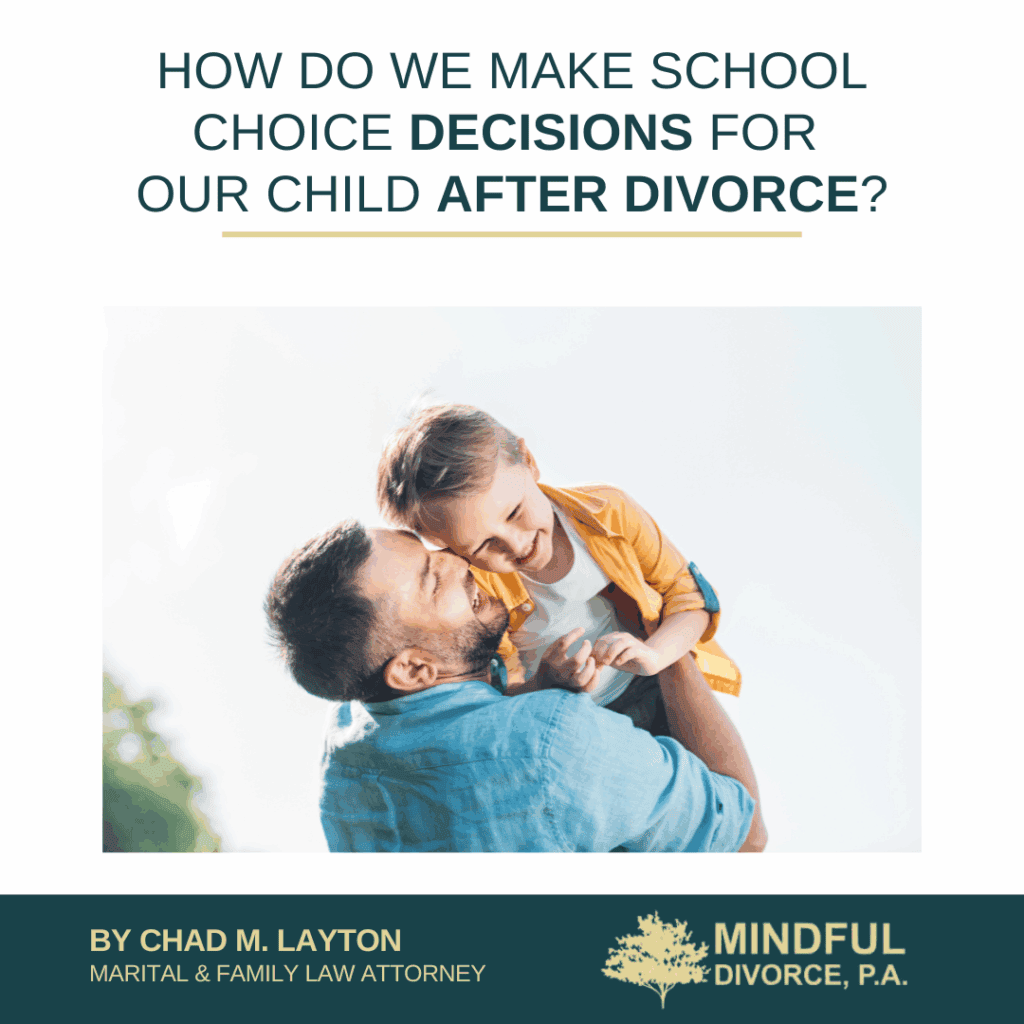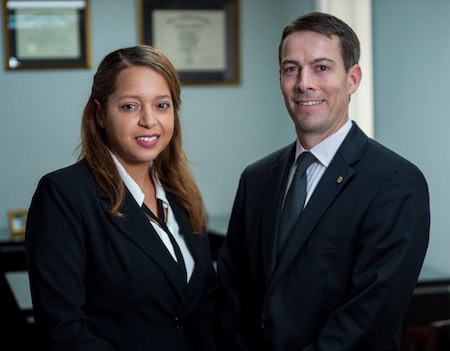
The answer is two-fold:
- Work with a divorce professional to help you address this important issue during your divorce. This will assure that you have a comprehensive Parenting Plan for your children, and that your plan includes agreements on important Parenting Issues that will need to be addressed by you and your ex-spouse long after your divorce is finalized.
- Your custom Parenting Plan will help you to avoid problems and misunderstandings down the road, and it will help you to stay out of court regarding your private family matters.
- If you did not have the help of a divorce professional during your divorce, and now you are running into problems with your ex-spouse regarding school choice or other important decisions for the best interest of your child, it may help you to have a general understanding of what Florida Family Law says on this issue.
- Here is a short outline of Florida Family Law as it relates to Parental Responsibility.
- If you do not have a custom parenting plan that outlines how specific decisions will be made for your minor children after your divorce, the law is going to be your next best reference.
- Florida Family Law provides under Fla. Stat.61.13 and Fla. Stat. 61.046(17) and (18), how decisions for minor children may be made by the parents after the divorce is finalized. The legal issue is labeled Parental Responsibility, or decision making authority.
- The default rule in Florida is that you shall enjoy shared parental responsibility with your ex-spouse. This is a relationship where both you and your ex-spouse retain full parental rights and confer with each other regarding major decisions affecting the welfare of your children.
- The final decision as to where your child will attend school will be determined jointly by you and your ex-spouse.
If you do not see eye to eye as to the best available school for your child to attend, and you reach an impasse on this issue, you have the option to work with an out of court collaborative team, or you may present the issue to a Judge for resolution.
The test to be applied by the court in resolving the dispute is inherently and deliberately subjective and is defined as – “the best interests of the child”. The reasoning behind this subjective measure is that all children are different. A one size fits all objective test would not properly suit the needs of different children.
For example, one child may excel in the areas of math and science that provide her with an opportunity to attend the IB program at Suncoast high school. While another child entering his/her high school years may excel in the arts and have an opportunity to attend the Dreyfoos School of the Arts.
Reviewing the school grades and finding that the child shall attend the school with the higher grade is a much simpler solution, if in fact the schools are not both graded the same, to resolve an educational dispute between the parents. However, this solution fails to consider the unique background of the child, his or her reasonable preference and the educational and extracurricular activities that will best suit his or his needs.
I hope that this information helps you or someone that you know to resolve their divorce outside of court, with peace and respect.
Mindful Divorce, P.A.
If you, or a friend of yours, has questions about collaborative divorce in Palm Beach County, we are here to help.
Helpful Resources:
Mindful Divorce Services – Fixed Fees






